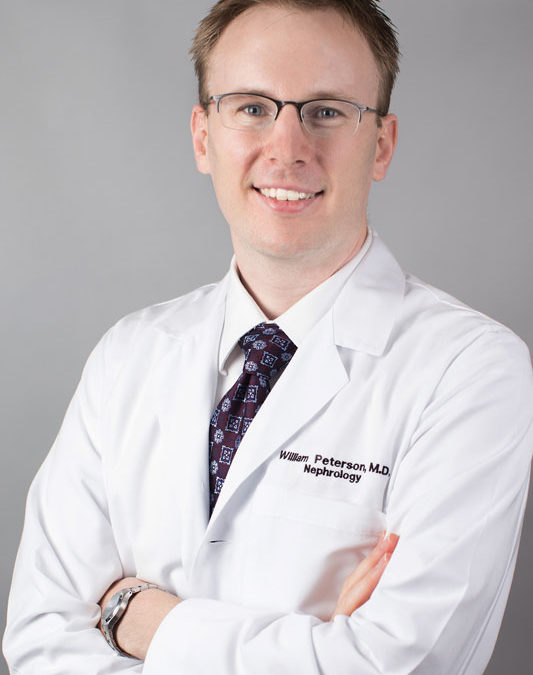By: William J. Peterson
Blood pressure is measured using two numbers. The top number, or systolic pressure, occurs when the heart contracts during a beat. The second number, or diastolic pressure, occurs while the heart is relaxed between beats. This measures the force pushing out on our vessels by the blood they contain. Blood pressure is written as a fraction such as 120/ 80 mmHg (millimeters of mercury) with systolic pressure on top and diastolic on the bottom. Hypertension, or “high blood pressure,” is when blood pressure increases above 140/90 mmHg. As many as one in three adults have high blood pressure. It has been called the “silent killer” and often causes no symptoms. The best way to know if you have hypertension is to have your blood pressure measured by a health care professional regularly. Hypertension increases the risk for many diseases including heart attacks, heart failure, stroke, peripheral vascular disease, and kidney failure. Hypertension can lead to early death if not treated appropriately. A person’s risk for hypertension can go up with obesity, low physical activity, high salt (sodium) diet, excessive alcohol intake or a family history of high blood pressure.
If you have or think you have hypertension there are many things you can do to help treat it and reduce your risk of life-threatening illness. Lose weight if you are overweight or obese. Exercise most days of the week. Even 30 minutes of walking a day can help. Cut back on the salt (sodium) in your diet. Reduce the amount of alcohol you drink to no more than one or two drinks per day. See your doctor regularly. Take medications you start for high blood pressure regularly. Talk to your doctor if side effects or the cost of your medications are a problem. There are many different types of blood pressure medications and some are less expensive. Do not stop medications suddenly on your own. Getting an automatic blood pressure cuff to use at home can often help you and your doctor adjust the dose or number of medications you take. See see your doctor regularly and talk about any questions you have.


Recent Comments